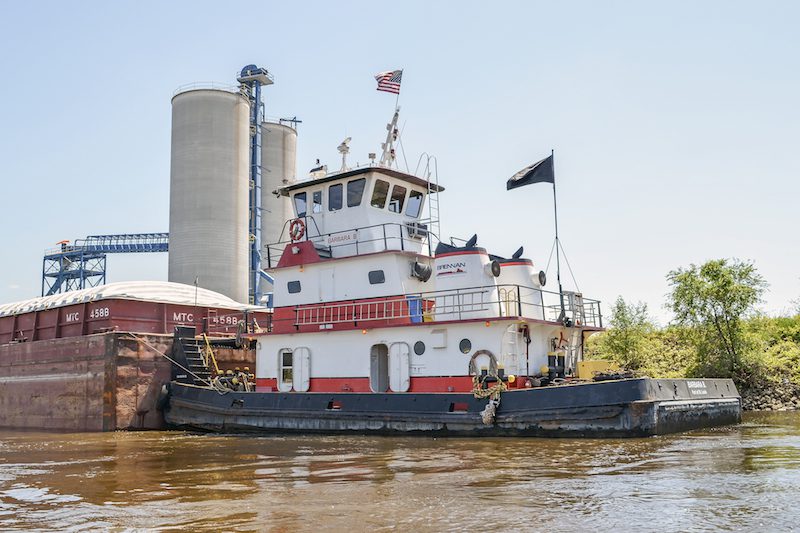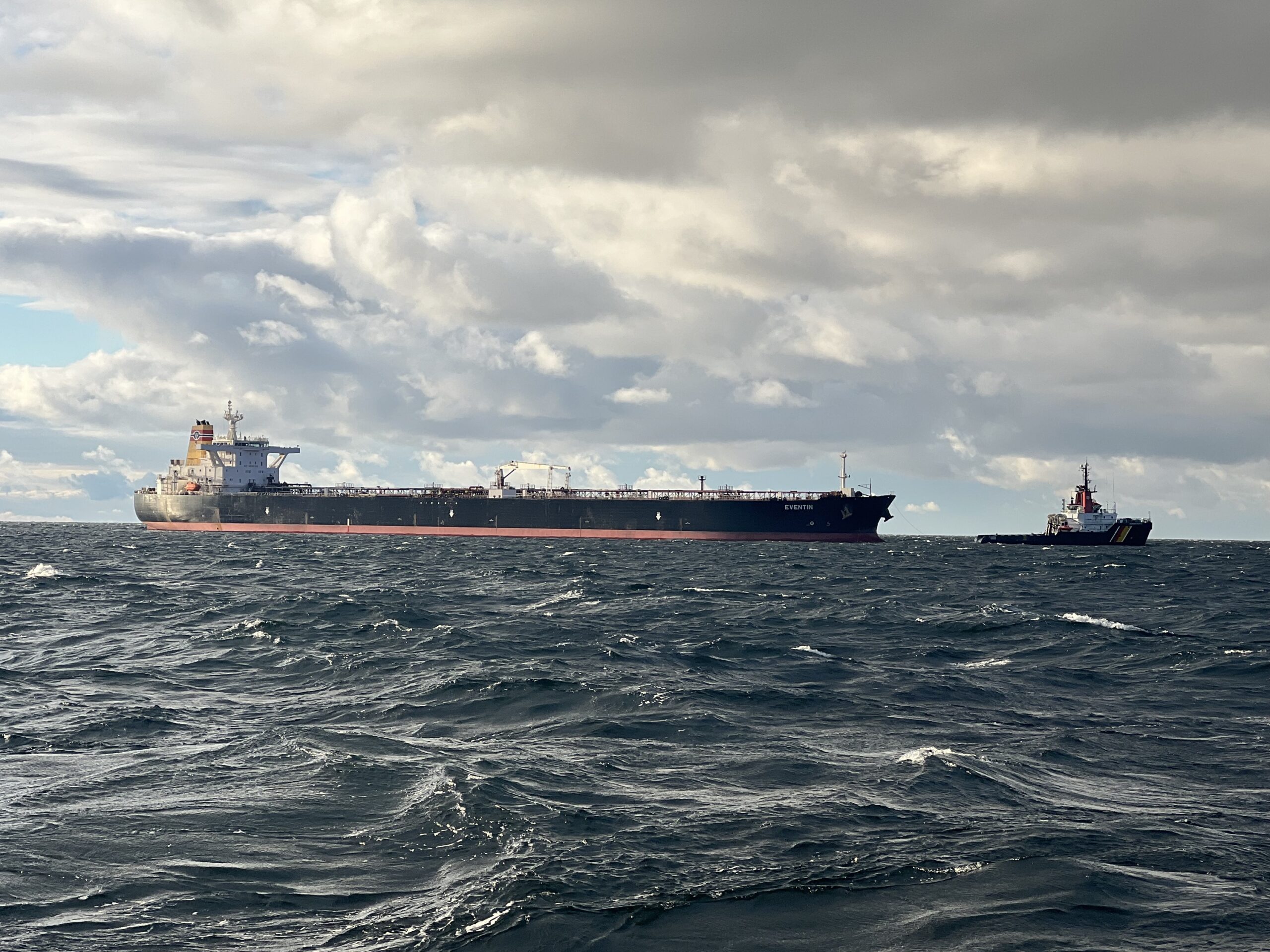File photo: American Maritime Partnership
 By Karl Plume and Michael Hirtzer
By Karl Plume and Michael Hirtzer
CHICAGO, Feb 23 (Reuters) – A glut of idled river barges is clogging Mississippi River shorelines from St. Louis to New Orleans, leaving U.S. barge companies that haul grain, coal and other bulk goods counting their losses.
Even with record-large exports of corn and soybeans, typically a boon for shippers that haul grain to Gulf Coast export terminals, the collapse of coal shipments to the lowest levels in decades has left the dry bulk barge fleet chasing too little cargo.
In pursuit of rising grain volumes since 2014, many shippers expanded their fleets too quickly.
Barge lease rates paid to companies like Archer Daniels Midland Co’s American River Transportation Company, privately held Ingram Barge and a handful of smaller operators are at 1-1/2-month lows and more than 30 percent below the five-year average for February. Rates from St. Louis to the Gulf Coast of $8.40 per ton are down from a pre-harvest high of $18.00 – not enough for many barge companies to turn a profit.
A rise in grain shipments has not been enough to offset the steeper decline in coal shipments. Grain barge shipments rose 21 percent from 2012 to 2015 to a near-record 89.7 million tons, but coal shipments dropped by nearly 47 million tons in that period, to 126.2 million tons. The U.S. Army Corps of Engineers, which tracks barge traffic, has not yet released data for 2016.
Demand for barges is at “historically weak levels,” barge maker Trinity Industries Inc told analysts on a conference call last week. Orders for new barges in the fourth quarter totaled just $18 million, compared with $190 million in the fourth quarter of 2015.
Some barge lines are paying companies to lash their mothballed vessels along river banks rather than lose money keeping them active, according to barge brokers. At least 11 percent of the fleet was idled this winter, a number that could double by spring as South America’s harvest competes with the United States for exports, according to industry estimates.
There is no reliable way to estimate industry-wide losses.
One small barge company spent $75,000 in December to idle nearly half of its 225-barge fleet. The company had estimated it would lose $450,000 in the month if it kept operating the barges, said a broker who asked not to be named because he was sharing his clients’ business information.
“I learned that math in the first grade. Losing $25 a day (per barge) or $150 a day. That’s a no-brainer,” he said.
LASTING PAIN
The barge backlog and financial losses are the result of a years-long expansion of the nation’s covered barge fleet. Seeking to cash in on massive U.S. crops, barge lines ordered new barges and converted open-top vessels previously used for coal into covered barges.
Today, there are an estimated 13,000 covered barges in the U.S. fleet, up from about 10,500 in 2014, barge brokers and transportation analysts said.
Ideal shipping conditions have also boosted capacity since last autumn’s record corn and soybean harvests. Fewer delays at river locks and higher-than-normal water levels increased shipping speeds and barge turnover, effectively raising the fleet’s capacity by about 15 to 20 percent, industry analysts said.
U.S. freight rates are expected to decline into July.
Consolidation is squeezing the diminishing number of small operators. More than 80 percent of all covered barges operating on the Mississippi River system are controlled by the five largest barge companies, up from about 50 percent in 1995, according to U.S. Army Corps of Engineers and Informa Economics data.
A manager at one small barge company, who requested anonymity to speak about internal company matters, said his company laid off three boat pilots and three deck hands after losing an Ohio River towboat contract to Indiana-based American Commercial Lines (ACL).
“It’s been a bad year for us, the worst year as far as financials ever,” said the manager.
ACL declined comment. (Editing by David Greising and Matthew Lewis)
(c) Copyright Thomson Reuters 2017.

 Join The Club
Join The Club











